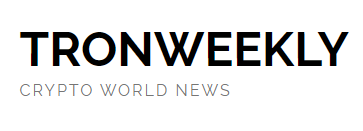You are here: Home / News / US Watchdog Crushes Crypto’s “Operation Choke Point 2.0” Theory

February 8, 2025 by Sadia Ali
- Regulators push back against claims of unfair crypto targeting.
- Crypto firms face scrutiny over legal compliance and financial risks.
- Misinformation about FDIC protection raises concerns.
A Wall Street watchdog group has challenged claims that financial regulators unfairly targeted the crypto industry. Ahead of a Feb. 6 hearing by the House Financial Services Committee’s Oversight and Investigations Subcommittee, Better Markets banking policy director Shayna Olesiuk pushed back against the “Operation Choke Point 2.0” narrative.
This theory suggests that U.S. regulators deliberately debanked digital assets firms, a claim echoed by industry leaders and some lawmakers. Olesiuk argued that the industry placed itself under regulatory scrutiny by engaging in questionable activities.
She pointed to the collapse of banks like Silvergate, Signature, and Silicon Valley Bank as evidence of crypto’s financial instability. These failures triggered significant economic disruption, raising alarms among regulators about the sector’s unchecked risks.
Crypto’s Rising Financial Risks
According to reports, the rapid growth of digital currencies has introduced market instability, with extreme price swings affecting investors and financial institutions. The total digital assets market cap soared to $3 trillion in 2021 before plummeting to around $1 billion in 2022, only to rebound post-2024 elections. Bitcoin alone has seen up to 30% single-day drops, fueling speculation-driven volatility concerns.

Beyond market swings, firms have also been accused of misleading consumers. Reports indicate that some companies falsely claimed their holdings were insured by the Federal Deposit Insurance Corporation (FDIC).
Such misinformation has the potential to trigger bank runs, as customers mistakenly believe their assets are protected. Regulators have flagged these deceptive practices but have yet to impose strict penalties, sparking criticism of enforcement leniency.
Crypto’s Influence on Policy and Public Trust
The digital asset industry’s influence extends beyond markets, with significant spending on political campaigns. In the 2024 elections, crypto-backed groups reportedly poured nearly $200 million into ads targeting lawmakers critical of digital assets.
Despite this aggressive lobbying, many voters remain skeptical of crypto, linking it to financial fraud, money laundering, and economic instability. Regulators insist that banks have the right to assess risks when providing services, including to crypto firms.
While crypto advocates argue for broader banking access, watchdog groups maintain that oversight is essential to prevent systemic financial harm. As the debate continues, the industry faces mounting pressure to comply with existing financial laws or risk further scrutiny from lawmakers and regulators.
Related Reading : Mind-Blowing Q4: Solana’s App Revenue Soars to $840M, Up 213%

 6 months ago
31
6 months ago
31




 English (US) ·
English (US) ·